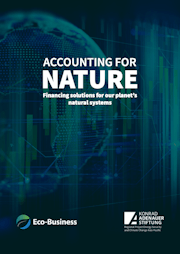
Time is running out to implement concrete plans capable of reining in a runaway biodiversity crisis. Government ministers and biodiversity experts are expected to begin negotiations in October over a “Paris agreement for nature” to be agreed at the COP15 biodiversity summit in Kunming, China in April next year.
The world failed to meet a single target agreed a decade ago to stem the tide of destruction of natural ecosystems. Broad targets are needed to improve the protection of nature – and there is likely to be a call for richer countries and private investors to commit to financing these efforts.
While COP15 may have stalled – it has been delayed twice already by the Covid-19 pandemic – efforts to protect biodiversity cannot afford to. The biodiversity crisis poses as great a risk to human life as climate change but has a fraction of the public profile and remains an economic externality.
Tackling nature-related risks is set to become a new frontier for sustainable business and finance, according to Elizabeth Maruma Mrema, executive secretary of the United Nations Convention on Biological Diversity and co-chair of the Taskforce on Nature-related Financial Disclosures (TNFD), a new market-led initiative for businesses to declare the of their activities on nature.
How to raise the cash to protect the ecosystems we depend on, and improve how we account for natural capital, poses a stiff challenge for corporates, governments, asset managers and financial institutions.
A new research paper, written by Eco-Business in partnership with the Regional Project Energy Security and Climate Change Asia-Pacific of the Konrad Adenauer Stiftung (KAS), serves as a platform to bring greater attention to the biodiversity crisis and the solutions that could help stem it.
This is the first in a series of research papers on biodiversity. The remaining research briefs, published in the coming months, will explore the value of biodiversity in Asia’s megacities and biodiversity and the ocean.
Publish your content with EB Premium
It's not about how many you reach. It's about who. Get your news, events, jobs and thought leadership seen by those who matter to you.

















